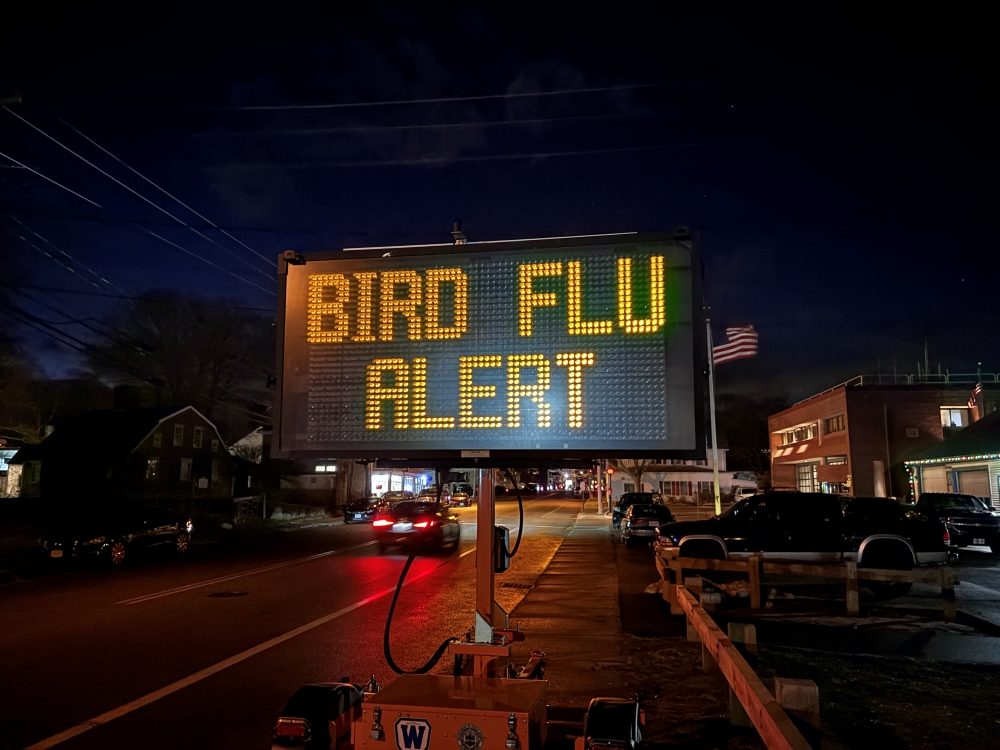State officials are calling the apparent presence of avian flu in Plymouth the largest such “outbreak in wild birds that we have seen in Massachusetts since the virus arrived in winter 2021-2022.”
Julia E. Hopkins, spokesperson for the Dept. of Fish & Game, said in an email late Wednesday that “state officials are coordinating with municipalities to organize clean-ups in areas where large numbers of dead birds have been reported, including Plymouth.”
As part of that process, a flock of 30 chickens kept in a yard not far from Billington Sea had to be euthanized last week, said Ashley Randle, the state’s commissioner of agricultural resources, during a press conference on Wednesday.
Karen Keane, Plymouth’s director of public health, said the flock was in a neighborhood south of Billington Sea, the freshwater pond where most of the bird deaths in Plymouth have occurred in recent weeks.
Keane said the chickens likely picked up the virus while roaming free range.
With Wednesday’s milder morning temperature, a team from the Massachusetts Division of Fisheries & Wildlife was able to collect another 71 birds from Billington Sea, she said – 42 geese, 26 swans, and three ducks. All were deceased.
State ornithologist Andrew Vitz, told reporters during the press conference that the current strain of bird flu first appeared among wild birds in North America in 2021. The outbreak that has taken place over the past few weeks is primarily affecting eastern and central states and eastern Canada, Vitz said.
Officials said 500 to 1,000 bird deaths believed to have been caused by the avian flu have been reported in Massachusetts, though they acknowledged the number is probably higher. They also said some deaths may have been reported by more than one person.
Vitz said testing indicates that the virus has spread widely throughout the state but is concentrated in Greater Boston and Southeastern Massachusetts. Lower concentrations of the virus have been detected in central Massachusetts and the Connecticut River Valley.
Raptors, waterfowl, and other aquatic birds are at the highest risk of infection, Vitz said. Though most birds die from the infection, he said, some might survive without showing any signs of illness but still spread the virus through droppings and other bodily fluids. Wild mammals, especially those that scavenge on birds – such as foxes – can also become infected, he said.
MassWildlife says that if anyone sees five or more dead wild birds at one location, they should report it on this site.
Meanwhile, the town continues to advise residents to report dead animals on their property, whether domestic or wild, to the Public Health Division at 508-322-3339, and to the animal control officer at 508-888-1186.
Fred Thys can be reached at fred@plymouthindependent.org.

